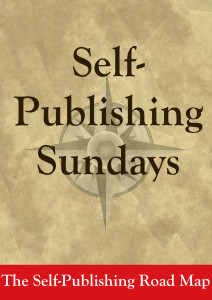 Happy Sunday to you. I hope you’ve had a great two weeks since we last talked self-publishing. For this week’s post, I was inspired by my colleague at Indies Unlimited.
Happy Sunday to you. I hope you’ve had a great two weeks since we last talked self-publishing. For this week’s post, I was inspired by my colleague at Indies Unlimited.
Martin Crosbie wrote a post saying that if you don’t have stellar book sales, then it may be your book that is the problem. And while Martin is right on some level, I think there’s more to it than that, when it comes to self-publishing, which is PUBLISHING.
In all of publishing, there is the general acceptance of the notion that not every book will sell. Traditional publishers make their money not by hitting homeruns with every book, but by hitting home runs with a small percentage of books and getting on base with a decent percentage. They are keenly aware that not every book will sell. When books don’t sell, they tend to weed that author from their roster, unless htey are of the belief that the lack of sales is an aberration and the author will do more next time. (Though, I don’t think publishers are generally of this belief.)
I think self-publishers have to accept the notion, too, that not all books will sale. There are a variety of reasons for this, but lets just chalk it up to Martin’s reason and say, “it’s the book.” I think self-publishers in that situation need to, at some point, act like traditional publishers and move on. Not every book is going to sell, and whe a book doesn’t, it’s time to move on to another book you think will sell.
The good news about self-publishing is you get to try some things before you move on. You can change the cover, lower the price, swap categories, advertise more and a slew of other things to see if those help improve book sales. But, if they don’t, then it’s OK to say, this one just isn’t a seller and move on to writing/selling your next book. Having a book that just isn’t selling because “it’s the book” is part of life. Look at JK Rowling’s experiment with her pen name, Robert Galbraith. The first book under this name, the Cukoo’s Calling received decent reviews, and was, by all accounts a solid book. It just wasn’t selling. Until it was revealed that Galbraith was Rowling’s pen name. Then it had astronomical sales.
But let’s say this were Rowling’s first book, under her own name. Let’s pretend this was her first idea rather than Harry Potter. Would we really want her to value her worth as a writer, her worth at enthralling readers based on Cukoo’s Calling’s performance? I think not. That’s just it. Sometimes it’s just the book. And that’s OK. Because it happens to phenomenal traditionally published writers and phenomenal self-published writers. We don’t just need a good book, but the magic that surrounds a good book and causes it to tick up the charts. We can summarize that luck, that magical confluence of factors in shorthand by saying, “it’s the book.” However, we as writers, must remember that when we say “it’s the book,” we entirely mean it. It’s not necessarily the writer. You can write another book and that one may do phenomenally. That is how we tend to learn about our favorite writers — they write tons of books and one captures our attention, so we go back and read others by them.
If you have a book that’s not selling and you think it falls into the “it’s the book” category, don’t fret. Happens to the best of them. Just get back on the horse and put out your next title, which may have more success.
You bring up a lot of great points here! Many successful, big-name authors failed many times before they finally hit a “home run” with a later project. Writers can’t get too low on their failures and too high on their successes. The life of an author is often an up-and-down rollercoaster ride!
Yes, thanks. Ups and downs are par for the course. The hope is to have more ups than downs.
None of us can realistically expect everything we do to succeed. What we must do is to keep striving to make each project the best we can and hope that, over all, we create some we can be proud of. Good post.
Very true, Yvonne. It’s the keep striving that allows people to ultimately have success.